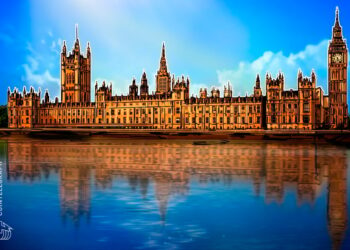Messaging app Telegram founder and CEO Pavel Durov warns {that a} “darkish, dystopian world” is approaching, with governments worldwide rolling again privateness protections.
“I’m turning 41, however I don’t really feel like celebrating. Our technology is operating out of time to avoid wasting the free web constructed for us by our fathers,” said Durov in an X publish on Thursday.
“As soon as-free nations are introducing dystopian measures,” stated Durov, referencing the European Union’s Chat Control proposal, digital IDs within the UK and new guidelines requiring on-line age checks to entry social media in Australia.
“What was as soon as the promise of the free change of knowledge is being changed into the final word software of management.”
“Germany is persecuting anybody who dares to criticize officers on the Web. The UK is imprisoning 1000’s for his or her tweets. France is criminally investigating tech leaders who defend freedom and privateness.”
“A darkish, dystopian world is approaching quick — whereas we’re asleep. Our technology dangers taking place in historical past because the final one which had freedoms — and allowed them to be taken away,” Pavel added.
Privateness protections are a cornerstone of Bitcoin and the broader cryptocurrency trade. Bitcoin was created to function pseudonymously, utilizing addresses as an alternative of names, and permitting peer-to-peer transactions with out the involvement of banks, amongst different measures.
Germany could have blocked the EU’s Chat Management
EU lawmakers have been set to vote on the Chat Management regulation subsequent week, which critics argue undermines encrypted messaging and other people’s proper to privateness because it requires providers comparable to Telegram, WhatsApp and Sign to permit regulators to display messages earlier than they’re encrypted and despatched.
The laws, nonetheless, has been dealt a heavy blow, with the top of Germany’s largest political party coming out in opposition. Germany, which holds 97 seats within the European Parliament, was anticipated to have the final say on whether it would pass.
The president of messaging app Sign, Meredith Whittaker, said on Thursday that whereas Germany’s opposition to the measure is a aid, she warns that “the warfare will not be over,” as a result of it now strikes to “the European Council, the place the problem is unresolved.”
She additionally warns that any additional makes an attempt to enact comparable measures permitting the scanning of content material must be opposed as a result of it negates encryption and likewise creates “a harmful backdoor.”
“The technical consensus is evident: you possibly can’t create a backdoor that solely lets the ‘good guys’ in. Nevertheless they’re dressed up, these proposals create cybersecurity loopholes that hackers and hostile nations are eagerly ready to use .”
UK’s Digital ID has sparked considerations, too
UK Prime Minister Keir Starmer announced a digital ID scheme in September, which might require residents to show their proper to stay and work within the nation.
The federal government is pushing the measure as a approach to fight unlawful staff, whereas additionally chopping down wait occasions to confirm identities and achieve entry to authorities providers, comparable to licenses, childcare, welfare and tax.
Critics argue that the scheme raises privateness considerations as people could be required to provide personal information to be saved on a authorities app, and it will be too straightforward for the federal government to misuse it.
Associated: I funded my lifestyle from Bitcoin, not Telegram: Pavel Durov
Over 2.8 million folks have already signed a petition opposing the introduction of a digital ID. Petitions that achieve greater than 100,000 signatures should be thought-about for debate in Parliament.
Australia’s on-line age verification system raises privateness points as nicely
Australia will restrict entry to social media platforms for customers below 16 from Dec. 10, and one of many measures floated to implement the ban has been an internet digital age verification system.
Lawmakers within the nation argue that the scheme will defend minors from dangerous content material on-line. Nevertheless, critics share comparable privateness considerations with the UK system, particularly that it may result in authorities misuse and create privateness points across the storage of knowledge.
Journal: Worldcoin’s less ‘dystopian,’ more cypherpunk rival: Billions Network

















